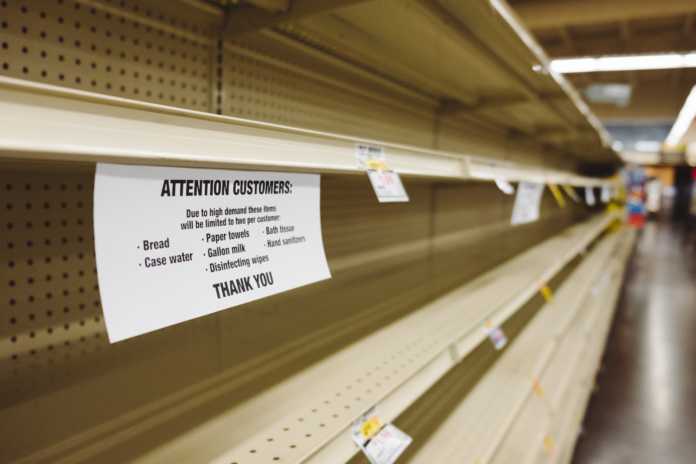As the uncertainty of the pandemic really set in, it seemed like people generally envisioned a return to normality as one instant event.
Suddenly shops would be open, co-workers would be able to mingle in offices and sports stadiums would be full again. It would all happen in an instant and there would be a terrifying moment in time to look back on and learn from.
That isn’t quite the case though. We’re now deep into the limbo of coronavirus recovery—looking over our shoulders at lockdown and facing a sanitised reality with more restrictions than normal. Perhaps no group is more unsure of their future and how to manage it than business owners.
But what does this uncertainty mean for Irish businesses and what challenges will it present?
Cutting costs
Much of the period immediately following COVID-19 will be characterised by significant cost-cutting.
Governments will have to find ways to get the economy back on track. Individuals will have to budget to an extent never seen before. And businesses will face what will likely be their hardest period of trade yet.
Many businesses will see the period we’re in now and the months following recovery or a vaccine as one of making up for lost time and income.
If businesses can’t find or don’t have access to new ways to offset the income lost throughout the lockdown period they will have to significantly cut costs in other ways—likely through redundancies or massively scaling back operations.
Creative cost-cutting in order to save jobs and keep the lights on will likely come in the form of industry-specific methods. For example, businesses with huge fleets of vehicles could benefit from fuel cards from iCompario. You can see why iCompario fuel cards could be such an attractive investment for this kind of business as each one in their library gives companies unique discounts on fuel and streamlines their internal expenses systems.
There are all kinds of opportunities for businesses unique to their field or industry to save a little bit of money in this worldwide down period. Rather than trying to scrimp across the board, businesses would be better served to find one huge expense (fuel, for example) and try to limit that to the largest degree.
Hiring from abroad
Hiring from abroad has become a common solution for Irish businesses struggling for talent with specific skills within the last decade.
The huge diversity of Ireland’s workforce has allowed for new opportunities and perspectives for many companies across a number of industries.
As the coronavirus pandemic halted travel significantly it obviously had a huge impact on immigration—an effect that could become more permanent as the crisis creeps on.
While travel has opened up faster than many people expected it to across the world, there are still many countries people are blacklisted from travelling to Ireland from. This makes it difficult for companies to expand their scope in specific roles and perhaps forces them to settle for less-suited ‘local’ candidates.
Likewise, as the world stands in trepidation awaiting a supposed second spike or resurgence of the virus people will be less likely to commit to moving abroad and finding roles away from their loved ones. The commitment will simply be too great for many people at an uncertain time.
As noted by the Irish Times, Coronavirus had an immediate impact on business’ ability to hire in Ireland – and there is no doubt a huge part of that was international recruits.
Prioritising safety
As staff return to offices and customers flood into shops in greater numbers, companies must be prepared to create the safest working environment possible.
Of course, what this means won’t be defined by just government restrictions, but the unique circumstances of each individual business.
Companies will need to put significant emphasis on making their environments safe spaces for disabled, high risk and older team members. Trying to balance government restrictions with often cramped spaces will prove impossible for many businesses – and could be a bigger challenge than surviving throughout lockdown measures.
Much like cost-cutting, each business must do their best to find that key, unique element they can re-engineer to make their business as safe as possible. Most likely, this will mean a continuation of remote working.
Responding to new demands
We’re not quite in the panic-buying period of coronavirus any more. However, there is still very much a question of demand that businesses must consider.
Many businesses will be selling products and services that simply won’t be in demand for much of the rest of the year (possibly going into next year), with the travel and tourism sector being perhaps the most high profile example. As the head of Tourism Economics, Adam Sacks, noted in CNN back at the offset of the virus – the travel industry is perhaps the largest in the world, with no other able to claim its employment numbers. To keep that sector running as smoothly as it did before Irish industries need to be able to respond in creative ways.
In the current state, businesses will suffer simply through fear from the public and a lack of reason to invest in them – no matter how the business itself reacts to coronavirus.
Rather than products running out being an issue, too much availability and a period of economic depression could force consumers to make hard decisions and abandon certain businesses.
Furthermore, we have now passed the period of shops opening and the immediate demand and intrigue that came with it. Yes, people are still dripping into these businesses and as more sectors reopen they will get an immediate boost from people looking to save them.
However, businesses will need to wrestle with people’s personal concerns about both finance and health, having to both promote themselves in a traditional sense and sell themselves as a company taking this seriously.
All of this is without mentioning the double-whammy of Ireland’s neighbours engaging in Brexit, which, while uncertain at the time of writing, will have a huge impact on Irish trade, workers arriving from the UK and international relationships.
Post-COVID won’t be a moment in time we’re able to define. The slow-release from lockdown across the world has shown us there will not be that immediate relief and businesses, in particular, will need to be prepared for that and the unique ways they will be affected.













